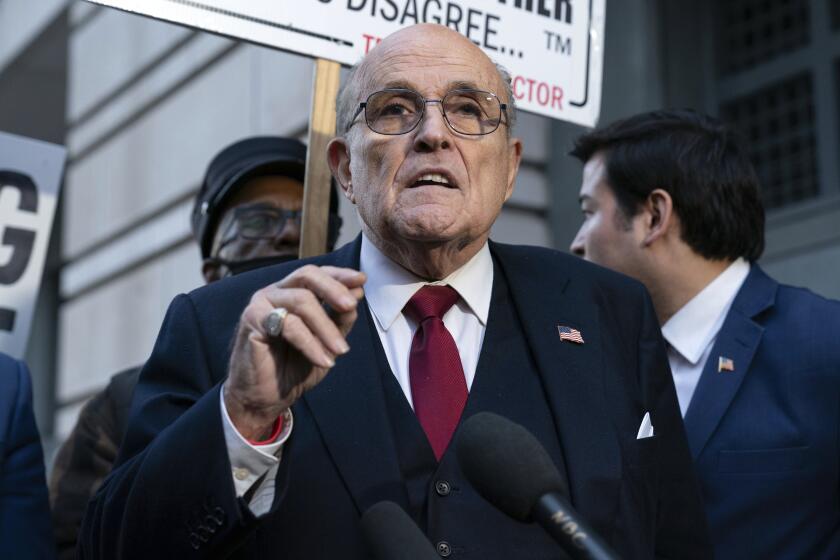GOP budget proposal seems more like a campaign document
House Republicans unveiled a campaign-ready budget that would slash federal spending, lower tax rates and overhaul Medicare — a do-over, of sorts, of its blueprint last year that got the party into political trouble.
GOP leaders believe that their approach, designed to portray Republicans as serious about reducing the nation’s deficits and debt, will provide an important election-year contrast with President Obama.
“We’re going to show the country there is an alternative path to the one the president has us on,” said Rep. Paul D. Ryan(R-Wis.), the House Budget Committee chairman and architect of the GOP blueprint.
With no prospect of passage in the Democratic-controlled Senate, the budget is more of a campaign document than an actual legislative proposal, one that congressional Republicans expect their presidential candidates to endorse.
“Our nominee owes it to the country to give them a choice of two futures,” Ryan said. “We’re helping him do that.”
Democrats are already attacking the plan, saying it would destroy the Medicare program for seniors and renege on an agreement on spending levels reached last summer by Congress and the White House.
The White House quickly attacked the budget as “wrong-headed,” and advocates for seniors and the poor said it would impose “savage cuts” on the federal safety net and make a “mockery” of the notion of shared sacrifice.
Yet even as the GOP proposal reduces deficits beyond what Obama proposed in his fiscal 2013 budget, it might not satisfy the most conservative elements in the party who are insisting that the budget be balanced within the decade.
On the presidential primary campaign trail,Rep. Ron Paul(R-Texas) signaled that he would probably vote against the budget. “This budget doesn’t actually ‘cut’ any spending,” he said. “It only reduces assumed increases in spending — essentially playing the same game the Washington establishment has played for years with our hard-earned money.”
Ryan’s budget would run annual deficits that total more than $3 trillion over the next 10 years. It would sharply cut spending and reduce individual and corporate tax rates to no more than 25%, and create just two brackets for individuals, 10% and 25%. His budget would not be balanced for years, even with a new cap proposed on spending sought by conservatives.
Congress needs to pass legislation to fund the government by Oct. 1, the start of the new fiscal year. If the two parties can’t agree, the government could be shut down.
In addition to proposing spending levels lower than those agreed to last summer as part of the debt ceiling accord, the GOP shifts the burden of future cuts from the Pentagon to other domestic accounts.
Both parties have balked at the 10% reduction in defense spending scheduled for January, but Democrats oppose the GOP approach of making deeper non-defense cuts, including in a revamped welfare program and in the food stamps program and Medicaid.
“We don’t want to turn the safety net into a hammock that lulls able-bodied people into lives of dependency and complacency,” Ryan said.
Yet it is the Medicare changes that may draw the most scrutiny, as Ryan again proposes to overhaul the healthcare program for seniors.
Ryan draws on a proposal he co-wrote with Sen. Ron Wyden, the Oregon Democrat, that would provide future seniors with a voucher to be used to purchase either traditional Medicare coverage or a private-run health plan.
Supporters say this “premium support” proposal would stem the rising costs of Medicare by creating competition between the program and insurers, but opponents say there is no guarantee the government stipend would keep up with premium costs, shifting the burden onto seniors.
More to Read
Start your day right
Sign up for Essential California for news, features and recommendations from the L.A. Times and beyond in your inbox six days a week.
You may occasionally receive promotional content from the Los Angeles Times.







